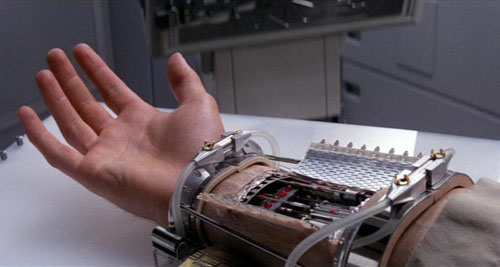I just ran across an article on Isaac Asimov’s predictions for 2014 from 50 years ago. I was thinking of a blog post to start out the year, and this popped out as a good opportunity. As anyone that reads this blog should know, Isaac Asimov is my favorite writer. His birthday is unknown for certain, but he chose to celebrate it on January 2nd. More information here. Anyway, back in 1964 at The World’s Fair, he made a few predictions. Some of the more accurate ones are below describing video phones, Robots, vehicular robots (Google car?), “Wall Screens” (not quite yet but very close), and a eerily accurate population estimate.
“Communications will become sight-sound and you will see as well as hear the person you telephone. The screen can be used not only to see the people you call but also for studying documents and photographs and reading passages from books. Synchronous satellites, hovering in space will make it possible for you to direct-dial any spot on earth, including the weather stations in Antarctica.”
“Robots will neither be common nor very good in 2014, but they will be in existence.”
“Vehicles with ‘Robot-brains’ … can be set for particular destinations … that will then proceed there without interference by the slow reflexes of a human driver.”
“Wall screens will have replaced the ordinary set; but transparent cubes will be making their appearance in which three-dimensional viewing will be possible.”
“The world population will be 6,500,000,000 and the population of the United States will be 350,000,000.”
Some of the more comical misses are below:
“Mankind will suffer badly from the disease of boredom, a disease spreading more widely each year and growing in intensity. This will have serious mental, emotional and sociological consequences, and I dare say that psychiatry will be far and away the most important medical specialty in 2014.”
“The most glorious single word in the vocabulary will have become work!”
I also have a prediction for today, the birth of a friend’s baby that is now one week overdue. It would be awesome to share a birthday with Isaac Asimov, right?
For the complete list and link to the original article, click the links below.
Via Open Culture
